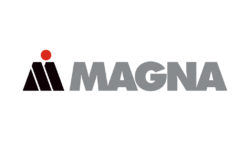At automotive supplier Magna International, paint shops are a crucial milestone for the production of car trim such as bumpers or sills. When they fail, an automaker’s entire supply chain is disrupted. This can be avoided with regular measurements of the plant parameters. The Industrial IoT enables automatic and continuous recording, which can be used to detect problems and faults in advance.
The challenge: Just-In-Sequence principle - avoiding downtime of the paint shop
Magna International is one of the world’s largest automotive suppliers with 170,000 employees, 345 production sites and 90 centers for product development, engineering and sales in 28 countries. The company manufactures components for all major OEMs and, with its subsidiary Magna Steyr Fahrzeugtechnik, also complete vehicles for manufacturers such as Mercedes-Benz, Chrysler, Saab, Peugeot and BMW. The company is particularly well known for the production of the Mercedes-Benz G-Class, which was largely developed at Magna Steyr.
These facts alone show the great importance of the individual production lines for the success of the company. Production of both vehicles and components is based on the just-in-sequence principle. In this sequence-synchronized production, components are delivered to the customer precisely in the order in which they are assembled. A major challenge here is the avoidance of unplanned downtime due to malfunctions in the machines. In a kind of domino effect, this would lead to considerable problems for logistics providers and manufacturers.
Typically, this is avoided by having technicians regularly inspect all machines, make necessary repairs, and replace wear parts during scheduled maintenance. The cost of this is high, and Magna International also sees the risk of a severe shortage of skilled maintenance technicians. So Magna engineers looked for a more efficient form of maintenance, initially for a pilot project in the paint shops producing exterior trim panels, mostly bumpers and sills.
Magna International used ifm‘s expertise in the design and set-up of the solution. The group of companies is a pioneer in Industry 4.0 and the Industrial IoT. Thanks to its own IoT platform, it is able to develop holistic solutions for the digitalization of the entire value chain “from sensor to ERP”.
The solution: Continuous monitoring of motor vibration and unbalance
The paint shop is an important station in the entire manufacturing process. The motors, pumps and ventilation units have up to 90 KW of power, so quick replacement is not always possible due to the large form factor. This makes the prevention of failures all the more important. The best way with such electric motors is to monitor the bearings to detect anomalies at an early stage. Previously, manual measurements were taken for this purpose at half-yearly intervals.
The digital process allows continuous measurements by networking the equipment with the Industrial IoT. For this purpose, they are equipped with sensors that detect motor vibration, imbalances, loose machine parts and the condition of the rolling bearings. First, a diagnostic system evaluates the data directly in the field and then transmits it to the IIoT platform ifm moneo.
moneo connects the level of Operation Technology with the level of Information Technology. The sensor data generated in the production facilities can be easily read and processed and used as a basis for sustainable business decisions. It is based on a modular concept and offers different applications that can be linked together.
Magna initially used the condition monitoring module in the pilot project. The data obtained is summarized on the platform and can also be displayed in a dashboard as a diagram with time series if desired. In addition, the overall result is displayed in the form of a traffic light. Limits are defined on the platform that must not be exceeded. Should this still be the case, technicians and management personnel receive alarm messages on their smartphone or in their e-mail account.
The result: Pilot project becomes a benchmark for the entire Magna Group
The pilot project was very successful, not least thanks to the good cooperation with ifm, and was able to demonstrate that condition monitoring with the Industrial IoT could prevent downtimes and faults to a large extent. The Group has therefore decided to initially equip the entire plant with the solution and establish it as a benchmark for Industry 4.0 throughout the Magna Group. Other process values such as temperature or flow rate are also to be determined.








